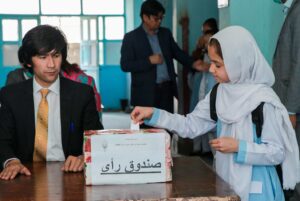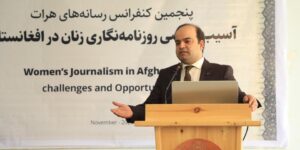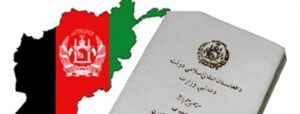 Afghanistan was not Albania’s war, and Albania was not an obvious destination for fleeing Afghans, The Washington Post’s Abigail Hauslohner writes:
Afghanistan was not Albania’s war, and Albania was not an obvious destination for fleeing Afghans, The Washington Post’s Abigail Hauslohner writes:
Yet Albania was one of the first nations to open its doors to Afghans when the Taliban too: over on Aug. 15, 2021. Within hours, Prime Minister Edi Rama had announced to the world that the Balkan nation would serve as a “transit country” and host Afghan evacuees.
A range of nonprofits – from Vital Voices to the National Endowment for Democracy (NED), the Spirit of America and even FIFA – helped arrange the evacuations, with several hundred landing in Shëngjin, a resort town on Albania’s north coast, she adds.

Credit: IJNET
Since the Taliban retook over the country, my employees’ (specifically female journalists’) lives are in danger, adds journalist Faisal Karimi (right), the former director of the Afghanistan Institute for Research and Media Studies (AIRMS), which he founded in 2015. Over the past seven years, we produced dozens of stories against the Taliban ideology and criticized their policies against women on YouTube and social media. So as the head of a [women’s] news agency, I had to tell my colleagues to leave the office and work remotely, he told IJNET’s Amarah Ennis:
The Afghanistan Institute for Research and Media Studies is actually three media institutions in one, but most of our focus, because of the shortage of resources, is on the Afghanistan Women’s Agency. I also established Kaashi Digital Media in 2019, for social entertainment and sports content for the youth in Afghanistan. We’re still working on this agency, but because of the lack of resources, we work very slowly and can’t produce too much these days.
Since the Taliban took over, with the support of our donor, the National Endowment for Democracy, we were able to evacuate all of my staff from a very dangerous situation, Karimi adds.
 Coordinating with the Center for International Private Enterprise, the International Republican Institute, and the National Democratic Institute, NED mobilized an organization-wide emergency response to help partners inside the country, including securing emergency funding and evacuating over 1,016 grantees and their families to the United States, Canada, and other countries.
Coordinating with the Center for International Private Enterprise, the International Republican Institute, and the National Democratic Institute, NED mobilized an organization-wide emergency response to help partners inside the country, including securing emergency funding and evacuating over 1,016 grantees and their families to the United States, Canada, and other countries.
“It’s personal,” said NED President and CEO Damon Wilson. “NED has provided support for hundreds of civil society groups and human rights defenders in Afghanistan since 1984, NED’s first year in existence. Given these relationships, we could not sit back and watch this crisis unfold without doing everything possible to help our partners.”

Credit: IRI
But veterans, U.S. service members, and others — including officials — who took part in the evacuation, said the collaboration of people across government and the civilian sector amid the rush of the evacuation also blurred the lines of expectation, Hauslohner adds.
“We were all working our contacts in these networks of people both inside the government and outside the government that were teaming up to get people out of Kabul,” said Rep. Elissa Slotkin (D-Mich.), a former CIA and Pentagon official. “Those days were so chaotic … you just had people across the world who were trying to do right by the people who risked their lives to help us.” RTWT
The #ReaganFascell Democracy Fellowship @NEDemocracy enables democracy advocates like @FatemaJafari10 to expand their networks and strengthen plans for future activism.
Learn more and apply: https://t.co/O5zugpVJKX pic.twitter.com/nCNgbXh5nv
— Forum @ NED (@ThinkDemocracy) September 1, 2022







